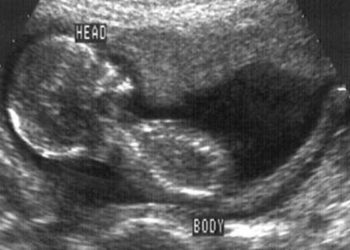Suicide care implementation in primary care decreases suicide attempts
1. In this secondary analysis of a stepped-wedge randomized trial, implementing strategies for suicide prevention concurrently with substance care programs was associated with a decreased number of suicide attempts.
2. The rates of safety planning also significantly increased after the transition from usual care to suicide care.
Evidence Rating Level: 1 (Excellent)
Study Rundown: It is very common for individuals who die by suicide to have attended a primary care clinic in the month leading up to their death. Primary care physicians thus have a critical role in identifying these at-risk individuals and offering care to support suicide prevention. Previous trials of suicide care (SC) integration in health care settings have shown positive outcomes, but relatively few studies have been conducted in the primary care setting. Thus, the goal of this study was to evaluate the effectiveness of population-based screening, risk assessment, and safety planning at primary care practices for the purpose of suicide prevention. It was found that implementation of the suicide care program parallel with a substance care program led to increases in depression screenings, suicide risk assessments, and safety planning. These interventions were associated with a significant decrease in suicide attempts during the 90 days after a primary care visit. This study was limited by the inability to verify the independent effects of suicide care and care for substance use due to simultaneous introduction of the two programs. Further, the study was conducted prior to the COVID-19 pandemic, thus limiting generalizability to virtual care settings. Nonetheless, these results indicate that implementation of population-based suicide care programs in the primary care setting may be an effective strategy for reducing suicide attempts.
Click here to read the study in AIM
Relevant Reading: Engaging primary care professionals in suicide prevention: A qualitative study
In-Depth [randomized controlled trial]: This secondary analysis of a stepped-wedge, cluster randomized trial was conducted to evaluate the effectiveness of incorporating SC into primary care. A total of 22 primary care practices were included, 6 of which were grouped into three distinct pairs for analysis. Patient eligibility criteria included being 18 years of age or older, and attending a primary care visit between January 1st, 2015, and July 31st, 2018. In year 1, 9 sites were randomly assigned to 3 implementation waves, while in year 2, 10 sites were assigned to 4 implementation waves. A total of 255,789 patients were seen during the usual care (UC) phase, and 228,255 patients were seen after SC implementation. The SC periods had lower rates of new psychotherapy compared to the UC periods (difference, 8.5 per 10,000 visits). However, safety planning rates were higher in the SC period by 5.5 plans per 10,000 visits, while suicide attempts were lower in the 90 days following a visit by 1.5 events per 10,000 visits. A greater number of patients in the SC group (84.5%) were screened for alcohol use disorders compared to those in the UC group (19.9%). Safety planning rates increased from 32.8 to 38.3 per 10,000 patients (rate difference, 5.5; 95% confidence interval [CI], 2.3 to 8.7), while the rates of suicide attempts within 90 days decreased from 6.0 to 4.5 per 10,000 patients (rate difference, -1.5; CI, -2.6 to -0.4]) when comparing UC to SC.
Image: PD
©2024 2 Minute Medicine, Inc. All rights reserved. No works may be reproduced without expressed written consent from 2 Minute Medicine, Inc. Inquire about licensing here. No article should be construed as medical advice and is not intended as such by the authors or by 2 Minute Medicine, Inc.







